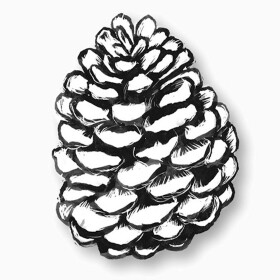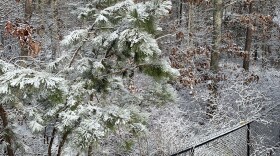
A Cape Cod Notebook can be heard every Tuesday morning at 8:45am and afternoon at 5:45pm.
It's commentary on the unique people, wildlife, and environment of our coastal region.
A Cape Cod Notebook commentators include:
Mary Bergman, originally from Provincetown, now lives on Nantucket. She is a writer and historian, working in historic preservation and writing a novel.
Seth Rolbein began his journalistic career on Cape Cod in the 1970s, then joined WGBH-TV as a writer, reporter and documentary filmmaker. He has written for many regional and national publications. His magazine and book-length fiction and non-fiction has spanned continents, and documentaries on National Public Television have won multiple national awards. Throughout, the Cape has been his home. He became editor-in-chief of the region’s weekly newspaper chain before starting The Cape Cod Voice; a weekly emailed column of the same name continues that effort.
Susan Moeller is a freelance writer and editor who was a reporter and editor with the Boston Herald and Cape Cod Times. She’s lived on the Cape for 45 years and when not working, swims, plays handbells, pretends to garden, and walks her dog, Dug. She lives in Cummaquid.
Tom Moroney is a veteran journalist and radio host whose love affair with Cape Cod began when he was a child. Before retiring in 2023, he was managing editor overseeing radio and television in Boston for Bloomberg, the global financial news company. He co-hosted Baystate Business, a daily radio program focused on the region’s economy. He also served as Bloomberg's Boston bureau chief. Moroney has been a print reporter with stints at The Boston Globe and People magazine. In the 1980s and ‘90s he wrote an award-winning column for the MetroWest Daily News in Framingham and was a correspondent for Greater Boston, the public affairs program on WGBH-TV.
Dennis Minsky's career as a field biologist began in 1974, at Cape Cod National Seashore, protecting nesting terns and plovers. A Provincetown resident since 1968, he returned full time in 2005. He is involved in many local conservation projects, works as a naturalist on the Dolphin Fleet Whale Watch, and tries to write.


Robert Finch, in memoriam, a nature writer living in Wellfleet who created, 'A Cape Cod Notebook.' It won the 2006 New England Edward R. Murrow Award for Best Radio Writing. He has lived on and written about Cape Cod for forty years. He is the author of six collections of essays, including "The Iambics of Newfoundland" (Counterpoint Press), and co-editor of "The Norton Book of Nature Writing." His new book, "The Outer Beach: A Thousand-Mile Walk Along Cape Cod’s Atlantic Shore." Bob passed away on September 30, 2024. Read more about him and hear some of his work here.
-
One day earlier this month, I took a walk out to the Marconi Station Site in South Wellfleet by way of Wireless Road. It was along this road that Guglielmo Marconi brought the materials to build his radio towers on the ocean bluff, the site from which he sent the first transatlantic wireless message to England on January 18, 1903.
-
Wild turkeys are a study in absurd elegance. Their body plumage resembles the overlapping scales of an armadillo — bronzed, metallic, armor-like.
-
-
We drive down Hummock Pond Road, where a concrete Jersey barrier marks the end of the asphalt and the beginning of the sea. It’s a shorter drive from town than all the way out to Madaket, and besides, there isn’t really a parking lot at Madaket Beach anymore, the erosion has taken big bites out of the pavement.
-
-
I spent my teenage years in Parkersburg, West Virginia, a small city on the banks of the Ohio River. There’s not much about the town that would strike a visitor – or a resident, for that matter – as noteworthy.
-
-
February 10th marked the 25th anniversary of the great fire at Whaler’s Wharf in Provincetown.
-
Back in late December, on Christmas Eve to be exact, the Cape and Islands were pummeled by a massive transcontinental storm that had plowed across the Great Plains from Minnesota to Texas, bringing freezing gales and blizzard conditions to much of the Northeast.
-
Last December, I hired a local tree company to take down some pines on the north side of our house. On the face of it, cutting down trees doesn’t seem to be the thing to do in this era of climate change, since trees are excellent “carbon sinks,” storing vast amounts of carbon dioxide.











